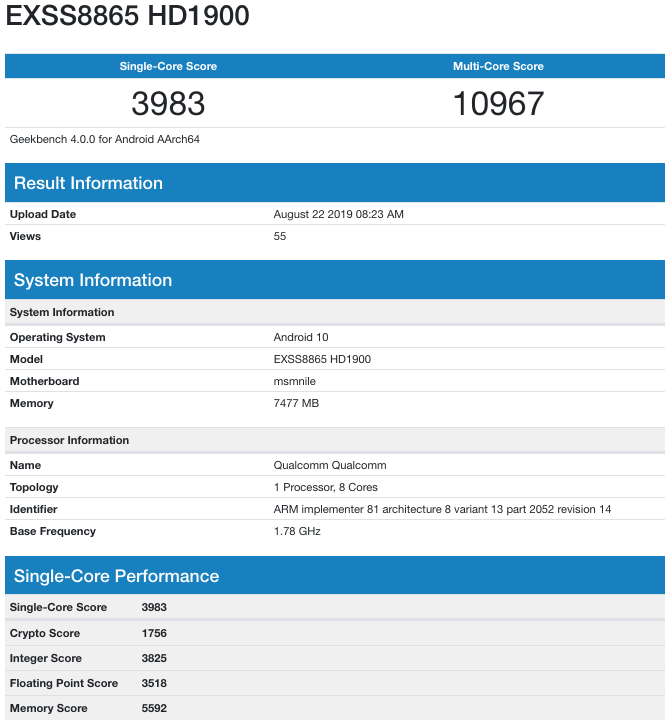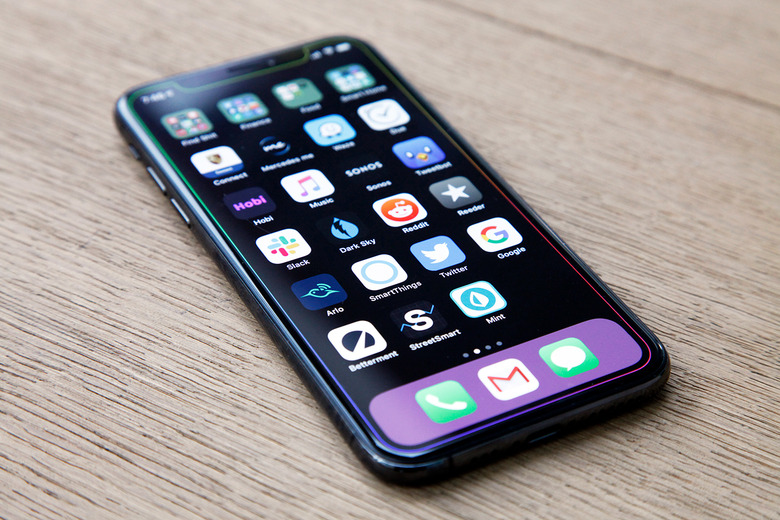Leak Reveals One Of 2019's Best Upcoming Android Phones Isn't Even As Powerful As iPhones From 2 Years Ago
With Apple's big unveiling of the iPhone 11, iPhone 11 Pro, and iPhone 11 Pro Max set to take place mere days from now, the upcoming new iPhone models are obviously dominating the news cycle right now. The sleek new iPhones are set to be the hottest new smartphones of the year, with a tweaked design and new cameras that could finally propel Apple back to the head of the pack when it comes to smartphone photography. We've also heard rumors of new frosted glass backs and new color options that should help spice up an otherwise modest hardware update. And when it comes to performance, we're obviously expecting big things from Apple's next-generation A13 processor.
Apple's iPhones are always at the top of the pile when it comes to power. In fact, it's difficult not to be impressed each year when we see brand new Android phones debut month after month that still can't manage to match the performance of Apple's iPhones from the prior year. Such is the case again this year, as brand new flagship phones like the Galaxy Note 10 and other 2019 flagship models continue to be outdone by Apple's year-old iPhone XR and iPhone XS handsets. Now, benchmark test scores from another upcoming Android phone have just leaked, and they once again show a 2019 Android phone that can't compete with 2018 iPhones. In fact, forget about last year's iPhones... it can't even outperform Apple's iPhone lineup from back in 2017 in some key benchmarks.
A smartphone is obviously about much more than just performance figures on paper, but certain benchmark test scores continue to be a good way to compare the performance of one device against another. The Geekbench benchmark test in particular is a great tool because it provides two numbers that are both crucial to the overall user experience. The first number is the single-core test score, which indicates how powerful a smartphone is while performing typical tasks. And the second number is the multi-core test score, which indicates how powerful a phone is when performing complex tasks at maximum load.
Geekbench is also where we look for smartphone leaks because engineers often use Geekbench while testing unreleased devices. Since all test scores are recorded on the Geekbench website, unreleased smartphones are often discovered by monitoring the site. Such is the case with the upcoming OnePlus 7T, a hotly anticipated upgrade to the OnePlus 7 that was released earlier this year. It's a phone with specs that rival most of the top Android phones that have been released so far in 2019, and leaked Geekbench benchmark test scores indeed show a phone with plenty of power.

Those scores are indeed impressive, and they rank well among other Android phones. Among iPhones, however, they don't stack up nearly as well.
OnePlus' upcoming 2019 "flagship killer" achieves a very respectable multi-core score that actually does come reasonably close to Apple's latest iPhones. The OnePlus 7T scored 10967, while Apple's iPhone models from last year achieve scores that range from about 11100 to just over 11500. What's incredible, however, is the fact that the OnePlus 7T's single-core score of 3983 isn't just obliterated by Apple's iPhone XR and iPhone XS, it's also beaten by iPhone models from two years ago!
Think about that for a moment. A brand new Android smartphone with cutting-edge specs and a whopping 8GB of RAM just got crushed in single-core Geekbench tests by the iPhone 8 (4217), iPhone 8 Plus (4286), and iPhone X (4277). These iPhone models are from back in 2017 and they have less than half as much RAM.
